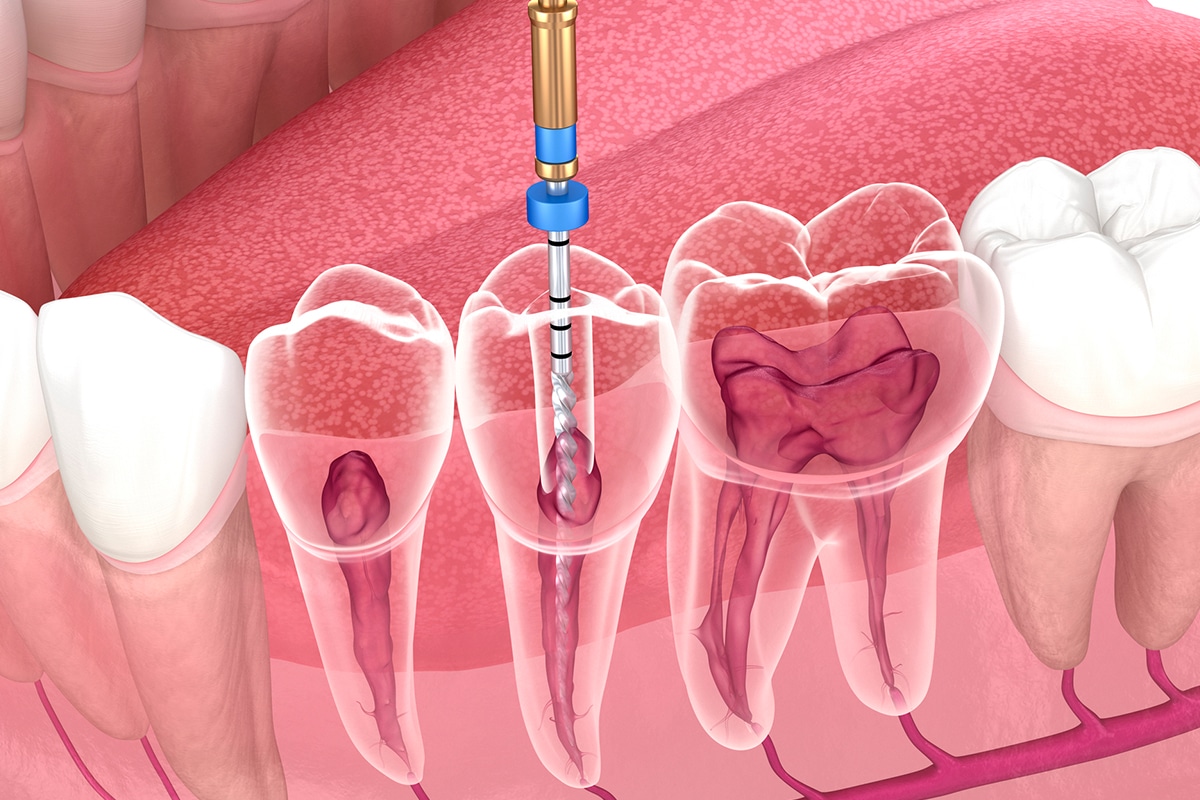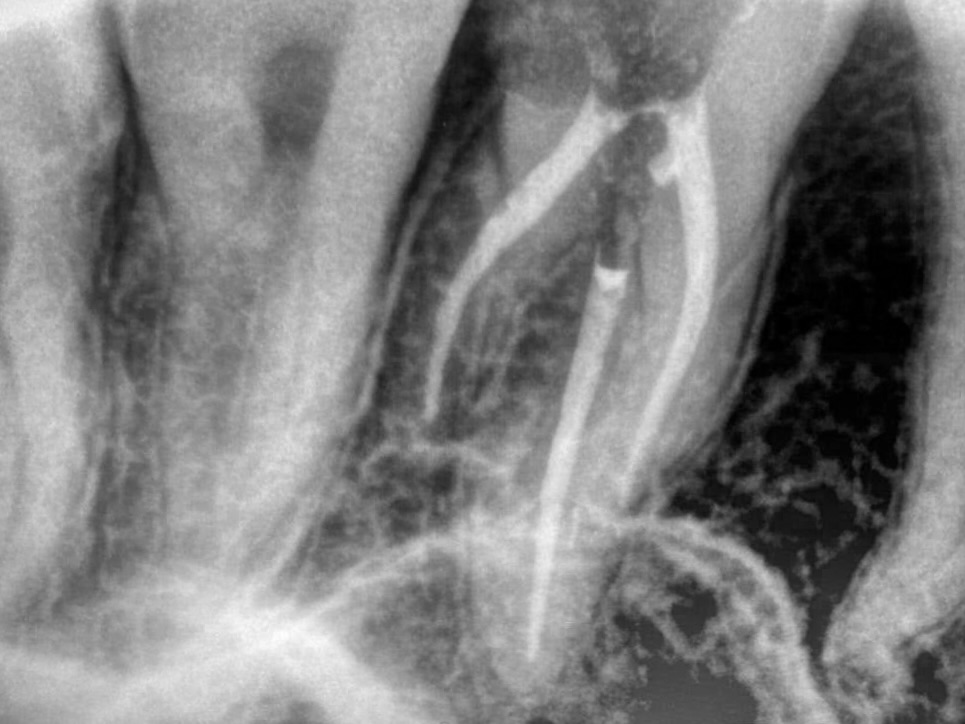
Endodontics
Endodontics, commonly known as root canal therapy, is a crucial dental procedure indicated to save teeth that have become infected or damaged. Here’s a brief overview of the process and its benefits:
What is Endodontics?
Endodontics involves:
- Removing Infected Tissue: The dentist accesses the pulp chamber to remove infected or damaged tissue.
- Cleaning the Root Canals: The canals are thoroughly cleaned and shaped to eliminate bacteria and prevent reinfection.
- Filling and Sealing: The cleaned canals are filled with a biocompatible material, sealing them to protect against future infection.

Common Causes for Treatment:
- Deep Cavities: Decay can extend to the nerve, necessitating treatment.
- Tooth Fractures: Any crack or break can expose the nerve.
- Physical Trauma: A hard hit can damage the tooth structure.
- Misadjusted Fillings: Improperly placed fillings can lead to nerve exposure.
- Gum Disease: Occasionally, severe gum issues can affect the roots of teeth.
Symptoms Indicating the Need for Treatment:
- Severe Pain: Often a sign of infection or nerve damage.
- Sensitivity: Increased reaction to hot or cold temperatures.
- Discomfort from Sweet or Acidic Foods: Pain triggered by certain foods can indicate nerve issues.
- Pain When Chewing: Discomfort during eating may suggest underlying problems.
Benefits of Endodontic Treatment:
- Tooth Preservation: Saves your natural tooth, preventing the need for extraction.
- Functional Restoration: Allows you to maintain normal biting and chewing functions.
- Avoiding Future Complications: Prevents further dental issues that can arise from extraction.
If you have more questions or need further information about the process, don’t hesitate to ask!

